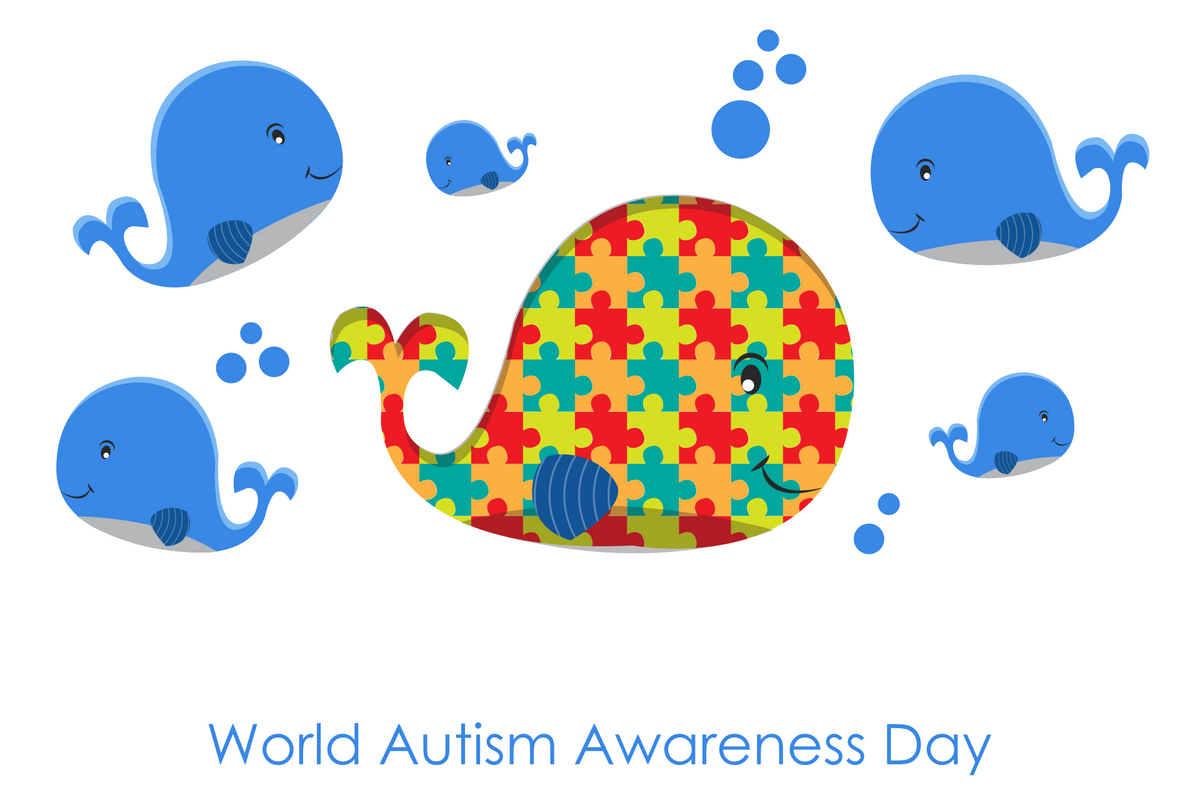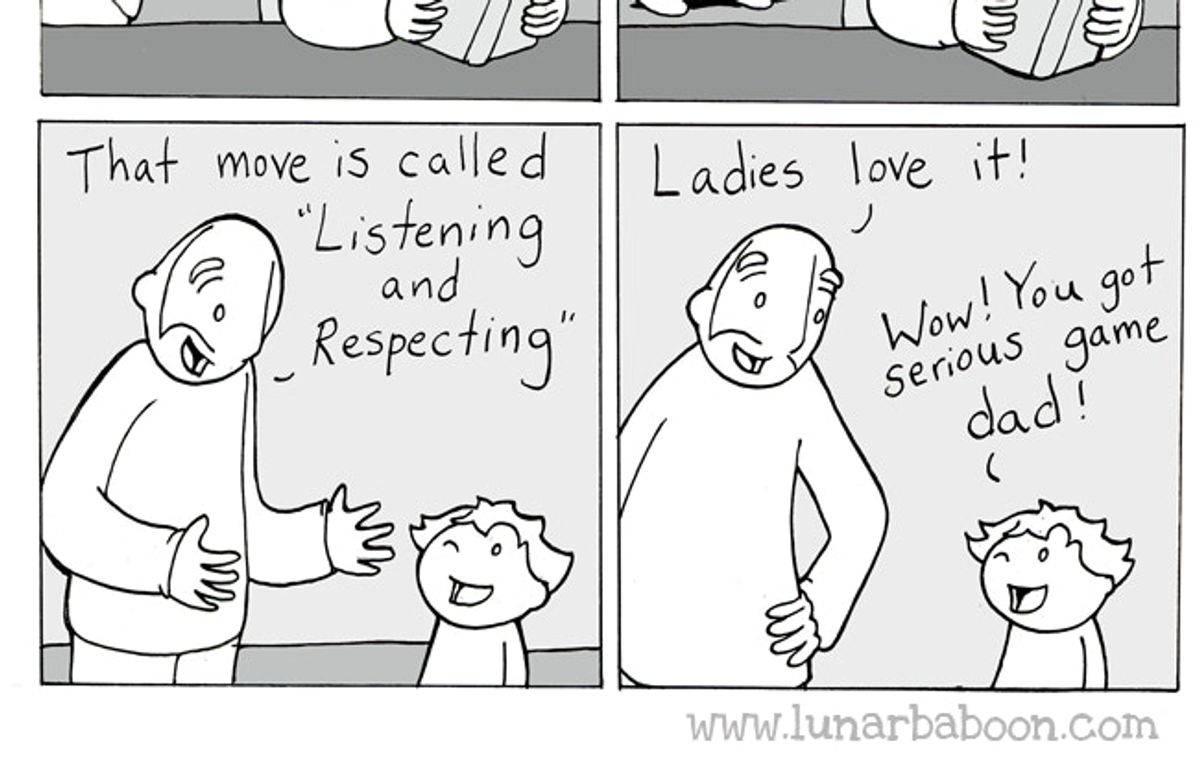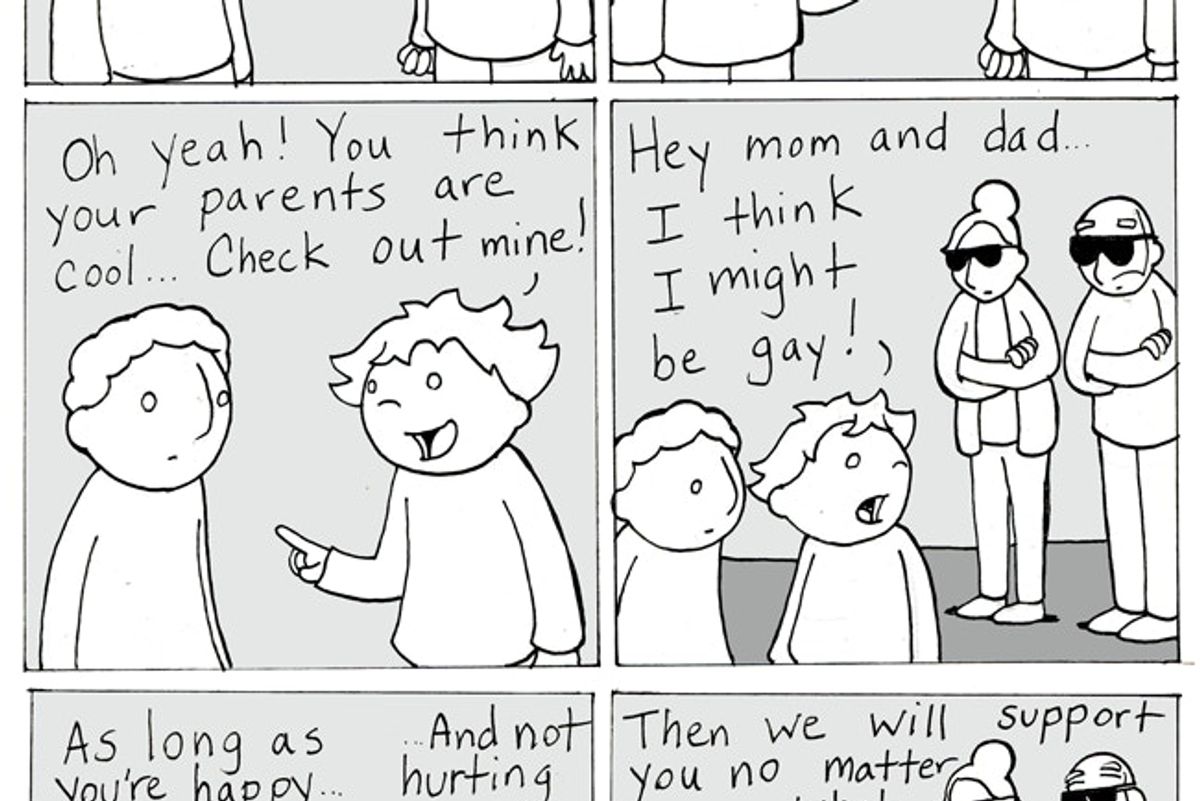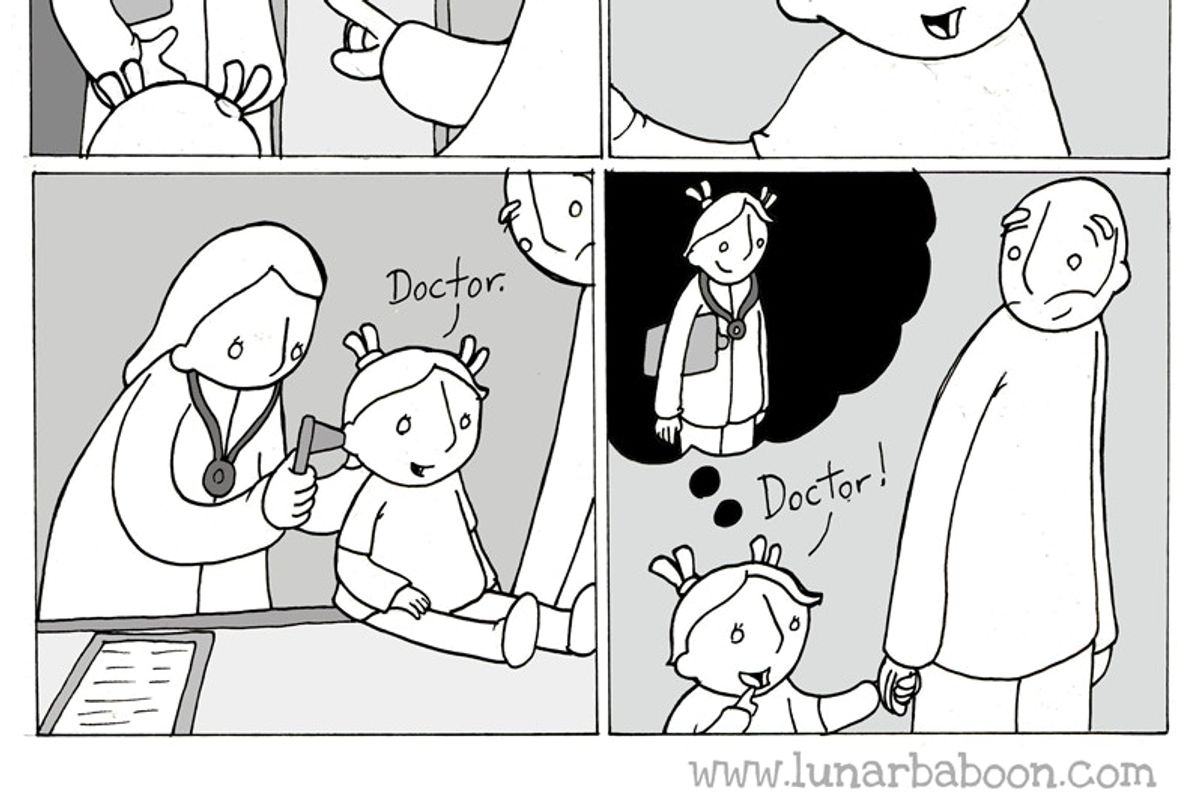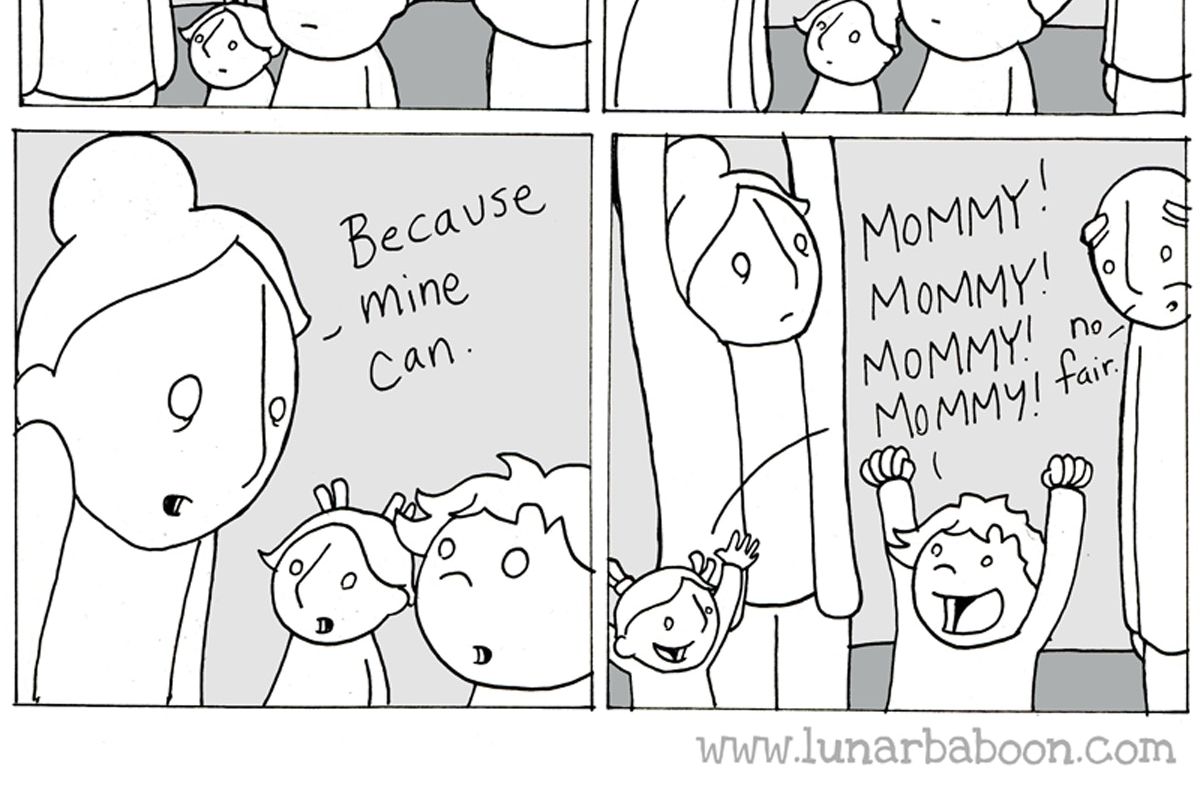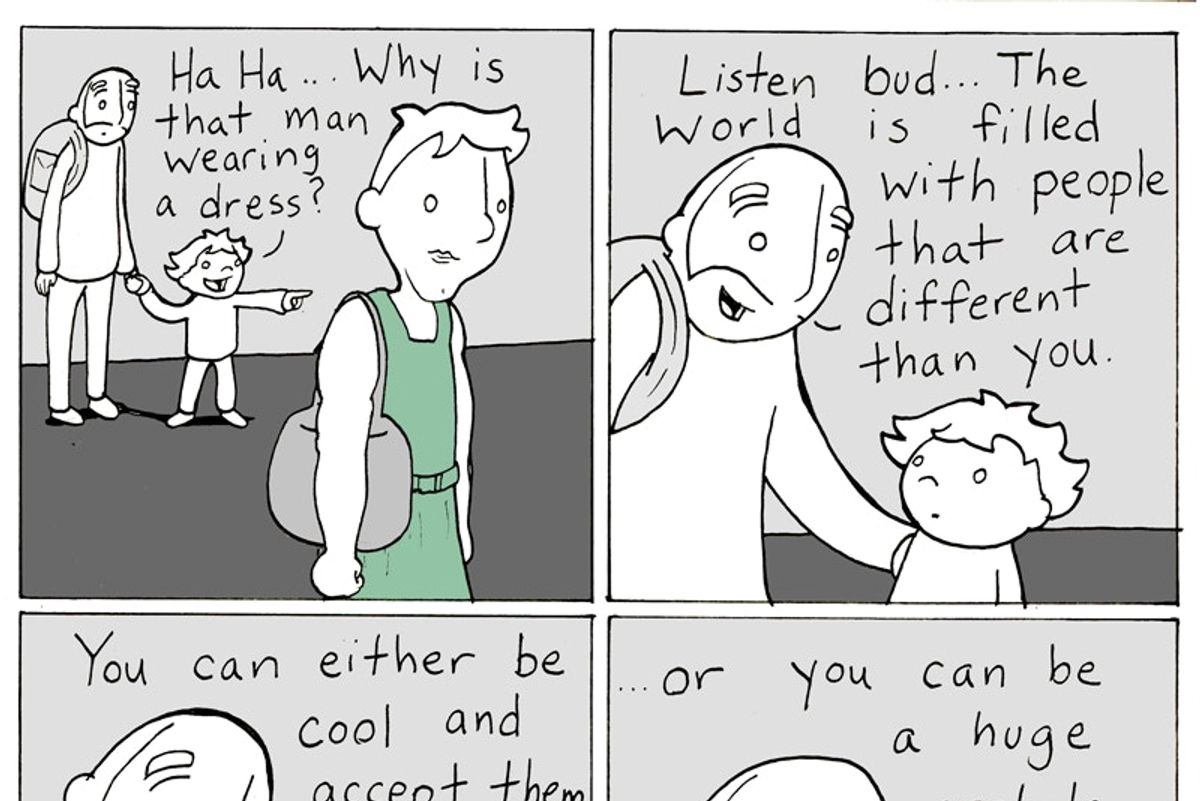In the 1960s, New York City Police Commissioner Michael J. Murphy enacted a series of policies that put Harlem under what was effectively a police state.
It was the dawn of the modern civil rights movement, and racial tensions were high. Murphy promised to be tough on "racial extremists" and even refused several times to listen to the pleas of civil rights groups who wanted an investigation into police brutality.
The Harlem riot of 1964. Photo via Dick DeMarsico/New York World Telegraph & Sun/Wikimedia Commons.
On July 16, 1964, New York Police Department officer Thomas Gilligan shot and killed a black teenager named James Powell on the Upper East Side. Hundreds protested in the streets, sparking the infamous Harlem riot.
The officer was investigated and then cleared of any wrongdoing.
"In our estimation this is a crime problem and not a social problem," said Commissioner Murphy.
In a 1964 interview, civil rights leader Malcolm X spoke out against Commissioner Murphy.
He said Muphy's policies and rhetoric had led to a deep distrust between the black community and the NYPD, as well as an increase in violence.
Shaun King, senior justice writer for the New York Daily News and a leader in the Black Lives Matter movement, recently tweeted a video of that interview.
King noted that 52 years later, Malcolm X's words are as "shockingly relevant" today as when they were first spoken.
GIF via YouTube.
"This gives the police the impression that they can then go and brutalize the Negroes or suppress the Negroes or even frighten the Negroes," Malcolm X continues in the interview.
"Whenever something happens, 20 police cars converge on one area."
While the civil rights movement of the '60s made great progress for racial equality, all you need to do is turn on the news to see that the distrust between the black community and police is still prevalent.
Hundreds of protestors are marching through the streets of Charlotte, North Carolina, in response to the police shooting of Keith Lamont Scott, a black man who police say was armed, though his family disputes that claim. The story is still developing.
Photo by Sean Rayford/Getty Images.
That's only the most recent example. In fact, it's only the most recent example in Charlotte, North Carolina. There have been dozens of similar stories from communities across the country over the past few years — stories of unarmed black men and women being brutalized or killed by the cops sworn to keep their communities safe.
You can see a palpable anger on the streets of Charlotte just as you could see it in the streets of Baton Rouge, Dallas, Tulsa, St. Paul, Chicago, Seattle, Baltimore, New York, Boston, Salt Lake City, and more. It's in Colin Kaepernick's national anthem protest, and in the Black Lives Matter movement.
Malcolm X's words are especially worth remembering as presidential candidate Donald Trump has proposed a stop-and-frisk policy that certainly would not help matters.
In response to a question about violence in black communities, the Republican presidential nominee recently said that he would enact a wide-reaching version of the policy known as stop-and-frisk, which empowers police officers to search virtually anyone they find suspicious.
"I would do stop-and-frisk," Trump said. "I think you have to. We did it in New York, it worked incredibly well."
No, it didn't. Photo by Mario Tama/Getty Images.
While Trump later clarified that he only meant Chicago, that doesn't stop his proposal from being deeply troubling.
Despite Trump's claim to the contrary, all evidence shows that stop-and-frisk didn't work in New York City.
Studies show that the vast majority of individuals stopped by the police under stop-and-frisk were black and Latino, despite the fact that white people were more likely to be carrying weapons or drugs. So all the policy accomplished was to deepen the existing distrust between police and minority communities.
Like Murphy in 1964, Trump has a poor grasp of the facts when it comes to addressing issues of race relations and crime — whether he's tweeting false crime statistics, threatening to fight Black Lives Matter protesters, or saying things like this:
GIF via CBS News/YouTube.
We need to get better, not worse. Enacting a policy rooted in racism — especially without proposing any policies to counter the systemic racial bias that the Justice Department continues to uncover in police departments across the country — that continues to treat the black community as dangerous-until-proven-otherwise is categorically worse.
It's scary to think that Malcolm X's words from half a century ago can still be applied to society today.
It's even more remarkable that a potential world leader is proposing policies and spouting rhetoric in 2016 that would feel right at home in 1964.
It shows that while we've come a long way, not nearly enough has changed — and if we continue to ignore the mistakes of the past, we will surely be doomed to repeat them.
Click here to make sure you're ready to cast a ballot on Nov. 8, 2016.


